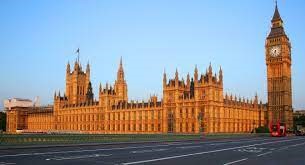Contact Us
If you would like to know more information about Transport Decarbonisation please contact our Brussels team or speak to our London office.

One of the most ambitious parts of the Fit for 55 proposal is the Carbon Border Adjustment Mechanism (CBAM). The Commission hopes this will prevent ‘carbon leakage’, where companies based in the EU could move carbon-intensive production abroad to take advantage of lax standards, or EU products could be replaced by more carbon-intensive imports. The CBAM will equalise carbon price between domestic products and imports and ensure that the EU’s climate objectives are not undermined by production relocating to countries with less ambitious policies.
Perhaps one of the most controversial aspects, and reportedly the issue which caused the press conference for Fit for 55 to be a couple of hours late, is the new ETS expansion for cars and buildings. The tax is seen as a regressive tax, and there were objections from several sectors, with people pointing out that it could place the burden on consumers rather than industry. The Commission has sought to see off such criticisms with creating a ‘social fund’, but the details are a bit hazy. This could be one of the most controversial areas when the European Parliament get their hands on it.
Fit for 55 will be introducing more robust CO2 emissions standards for cars and vans that will help achieve zero-emission mobility. This will require emissions from new cars to come down by 55% from 2030 and 100% from 2035. This will mean that all new cars registered as of 2035 will be zero-emission. To ensure that this is possible, and that drivers are able to charge or fuel their vehicles at a reliable network across Europe, the revised Alternative Fuels Infrastructure Regulation will require Member States to expand charging capacity in line with zero-emission car sales, and to install charging and fuelling points at regular intervals on major highways.
Fit for 55 will also tackle emissions in the aviation industry with the Alternative Fuels Infrastructure Regulation. This will require that aircraft have access to clean electricity supply in major ports and airports. The ReFuelEU Aviation Initiative will oblige fuel suppliers to blend increasing levels of sustainable aviation fuels in jet fuel taken on-board at EU airports, including synthetic low carbon fuels, known as e-fuels.
with the headline figures for the aviation industry being that it will be net-zero by 2050. Sustainable aviation fuel and efficient aircraft are the immediate areas of focus – suggesting hydrogen and electric will be a longer-term ambition. The Govt wants to present this strategy as one which will not burden the public. People can continue to do the same things they have always done but in a more sustainable way. This was a running theme during the Secretary of State’s presentation to Parliament today. As such, there is little discussion on passenger numbers or airport expansions in the new strategy. The Govt wants people to know they can keep flying but that they will do so sustainably. Consultations on short-haul flights will be something to watch out for.
One of the headline commitments announced today is to ban the sale of new diesel and petrol heavy goods vehicles and buses. Precise details of the phase out is light, but the Department for Transport will consult on proposals for the phase out of these vehicles in the coming months.

To view the Fit for ’55 Package and all its documents, click here.

To read the UK Govt’s Transport Decarbonisation Strategy, click here.
If you would like to know more information about Transport Decarbonisation please contact our Brussels team or speak to our London office.